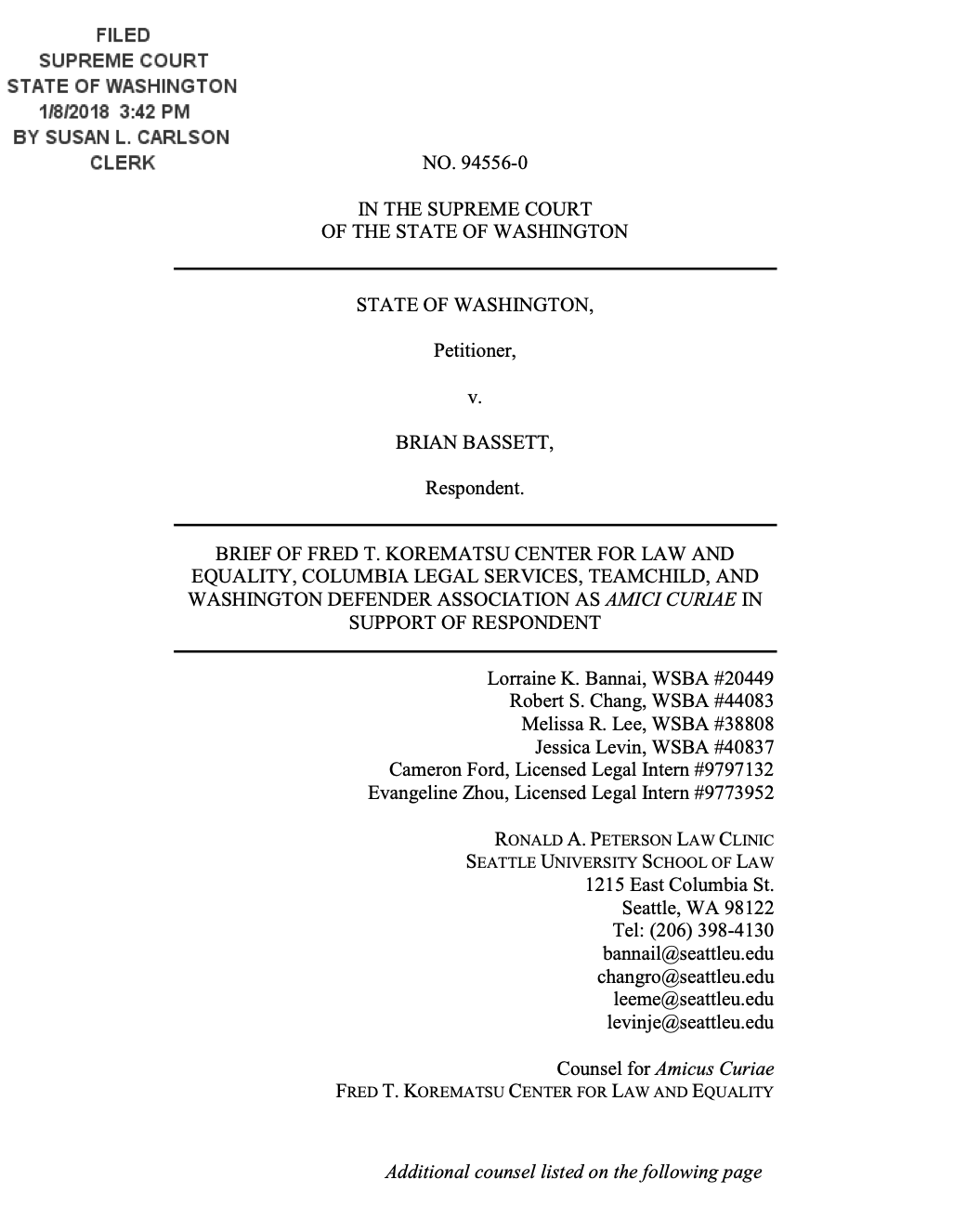
Summary of Argument
Our state constitution robustly protects against cruel punishment, State v. Witherspoon, 180 Wn.2d 875, 887, 329 P.3d 888 (2014), and implicit in that protection is the continuing duty of Washington courts to develop article I, section 14 jurisprudence to ensure that it remains more protective than the Eighth Amendment. Under the Eighth Amendment, life without the possibility of parole for a juvenile offender is constitutional only in the “rarest” of cases. Montgomery v. Louisiana, 577 U.S. __, 136 S. Ct. 718, 726, 193 L. Ed. 2d 599 (2016), as revised (Jan. 27, 2016). As the Court of Appeals rightly recognized, the identification of those “rare” cases is not only next to impossible, but creates an unconstitutional risk of cruel punishment: “[i]n light of the speculative and uncertain nature of the Miller analysis, the Miller-fix statute creates a risk of misidentifying juveniles with hope of rehabilitation for those who are irretrievably corrupt. That is unacceptable under our State’s cruel punishment proscription.” State v. Bassett, 198 Wn. App. 714, ¶ 61, 349 P.3d 430 (2017), review granted, 402 P.3d 827 (2017). The Court of Appeals’ adoption of a categorical bar against juvenile life without parole is both a necessary and logical progression of Washington’s robust protection against cruel punishment.
This Court should affirm the adoption of the categorical bar against juvenile life without parole for two reasons, each of which is sufficient on its own to uphold the Court of Appeals. First, the Court of Appeals explicitly acknowledged that Washington’s cruel punishment jurisprudence needs to evolve beyond the proportionality analysis under State v. Fain, 94 Wn.2d 387, 617 P.2d 720 (1980), which is ill-suited to the inquiry of whether juvenile life without parole is ever constitutional. Rather than continue to rely on the Fain proportionality analysis, which is a test designed to examine idiosyncratic facts on a case-by-case basis rather than consider the constitutionality of an entire category of punishment as it relates to juveniles, the Court of Appeals adopted the categorical bar to establish that juvenile life without parole is never constitutional.
Second, employing a Gunwall analysis as an interpretive tool to aid development of state constitutional jurisprudence, amici demonstrate that the Court of Appeals’ adoption of the categorical bar represents a principled development of Washington’s cruel punishment jurisprudence.2 A formal Gunwall analysis, although unnecessary, demonstrates that the categorical bar is the only meaningful way to ensure heightened protection against cruel punishment to juvenile offenders charged with homicide, and that this Court’s extension of Eighth Amendment jurisprudence beyond its formal holdings supports the explicit adoption of the categorical bar under article I, section 14. These, as well as other factors, compel this Court to uphold the categorical bar against juvenile life without parole.